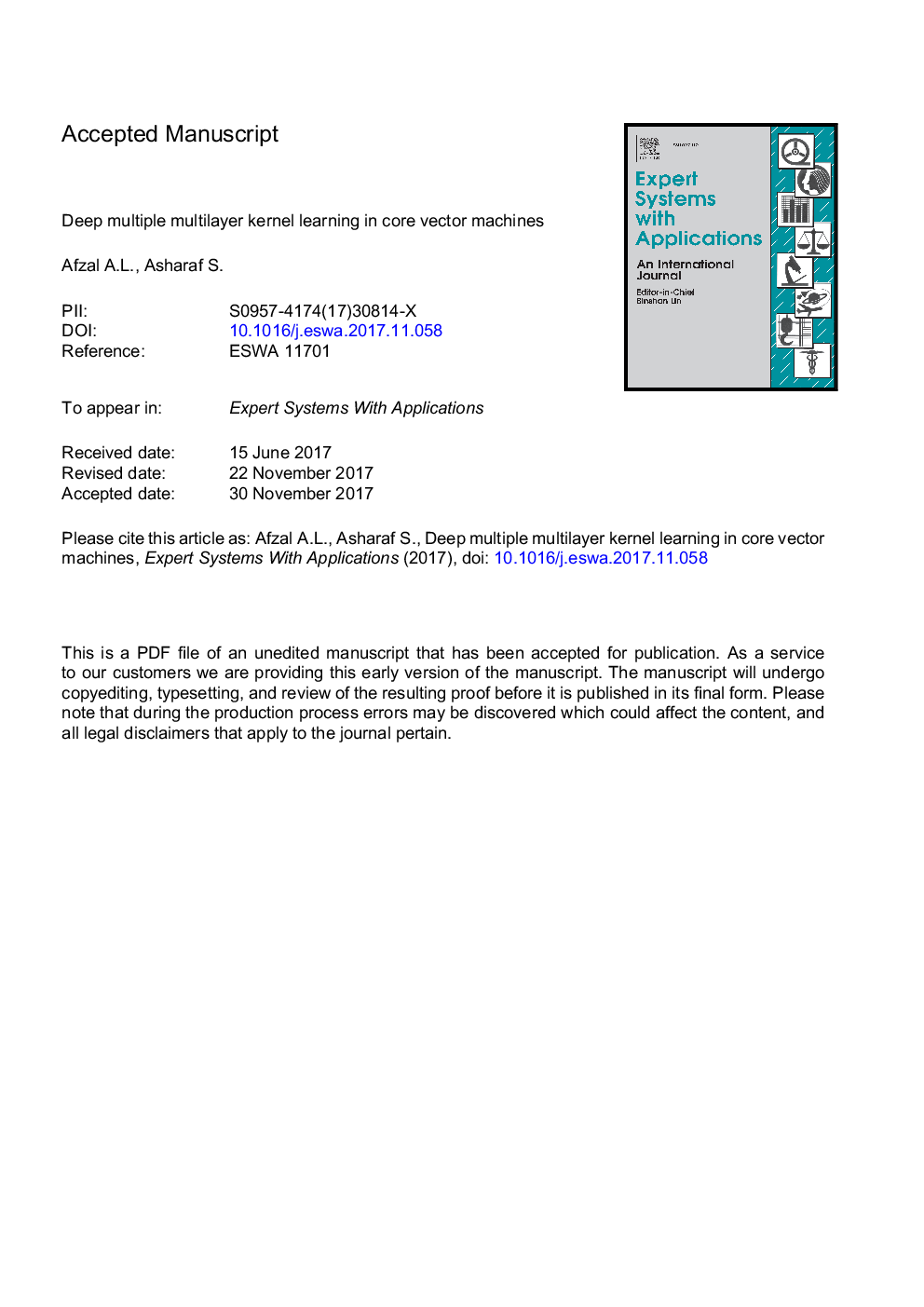| Article ID | Journal | Published Year | Pages | File Type |
|---|---|---|---|---|
| 6855219 | Expert Systems with Applications | 2018 | 30 Pages |
Abstract
Over the last few years, we have been witnessing a dramatic progress of deep learning in many real world applications. Deep learning concepts have been originated in the area of neural network and show a quantum leap in effective feature learning techniques such as auto-encoders, convolutional neural networks, recurrent neural networks etc. In the case of kernel machines, there are several attempts to model learning machines that mimic deep neural networks. In this direction, Multilayer Kernel Machines (MKMs) was an attempt to build a kernel machine architecture with multiple layers of feature extraction. It composed of many layers of kernel PCA based feature extraction units with support vector machine having arc-cosine kernel as the final classifier. The other approaches like Multiple Kernel Learning (MKL) and deep core vector machines solve the fixed kernel computation problem and scalability aspects of MKMs respectively. In addition to this, there are lot of avenues where the use of unsupervised MKL with both single and multilayer kernels in the multilayer feature extraction framework have to be evaluated. In this context, this paper attempts to build a scalable deep kernel machines with multiple layers of feature extraction. Each kernel PCA based feature extraction layer in this framework is modeled by the combination of both single and multilayer kernels in an unsupervised manner. Core vector machine with arc-cosine kernel is used as the final layer classifier which ensure the scalability in this model. The major contribution of this paper is a novel effort to build a deep structured kernel machine architecture similar to deep neural network architecture for classification. It opens up an extendable research avenue for researchers in deep learning based intelligent system leveraging the principles of kernel theory. Experiments show that the proposed method consistently improves the generalization performances of existing deep core vector machine.
Keywords
Related Topics
Physical Sciences and Engineering
Computer Science
Artificial Intelligence
Authors
Afzal A.L., Asharaf S.,
